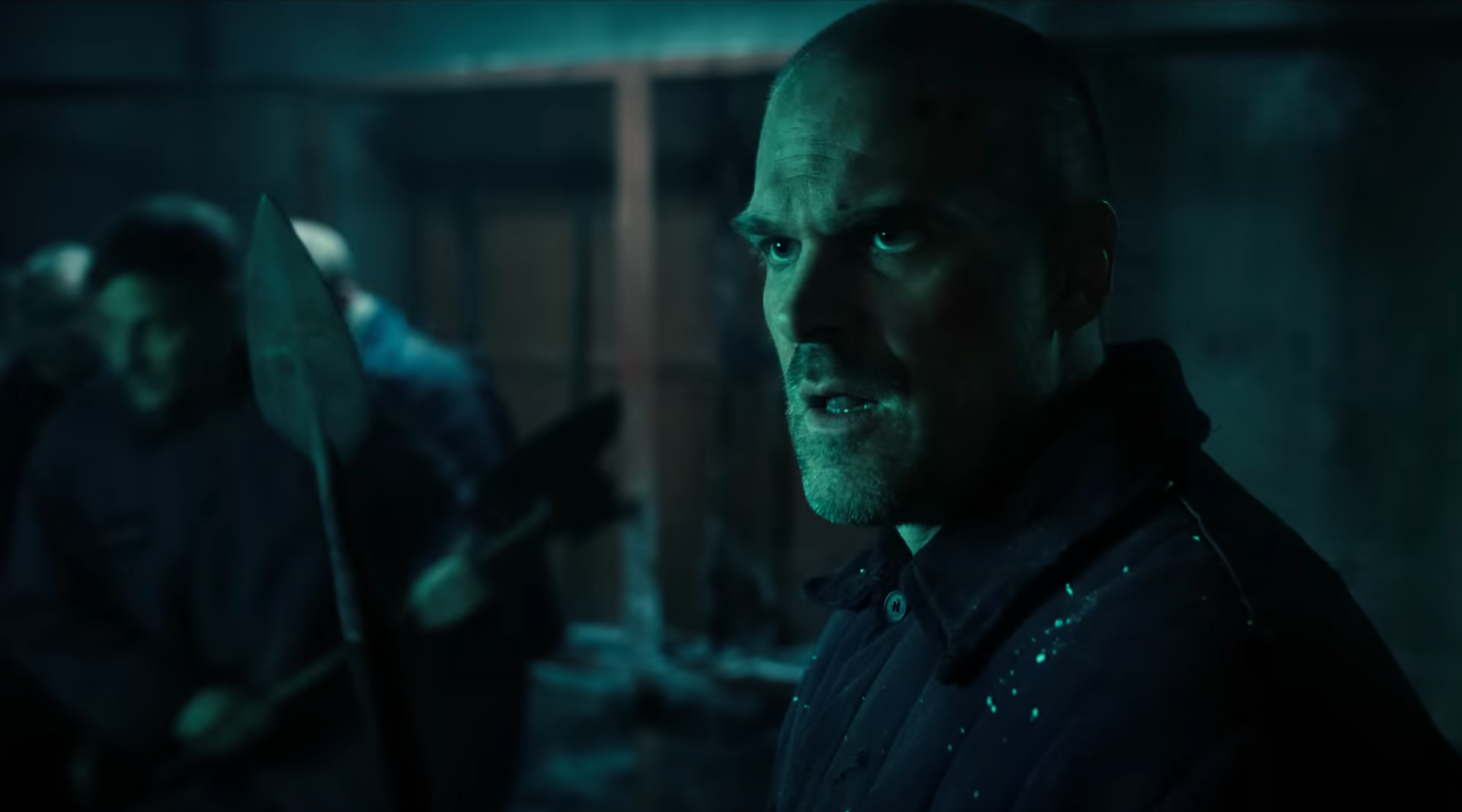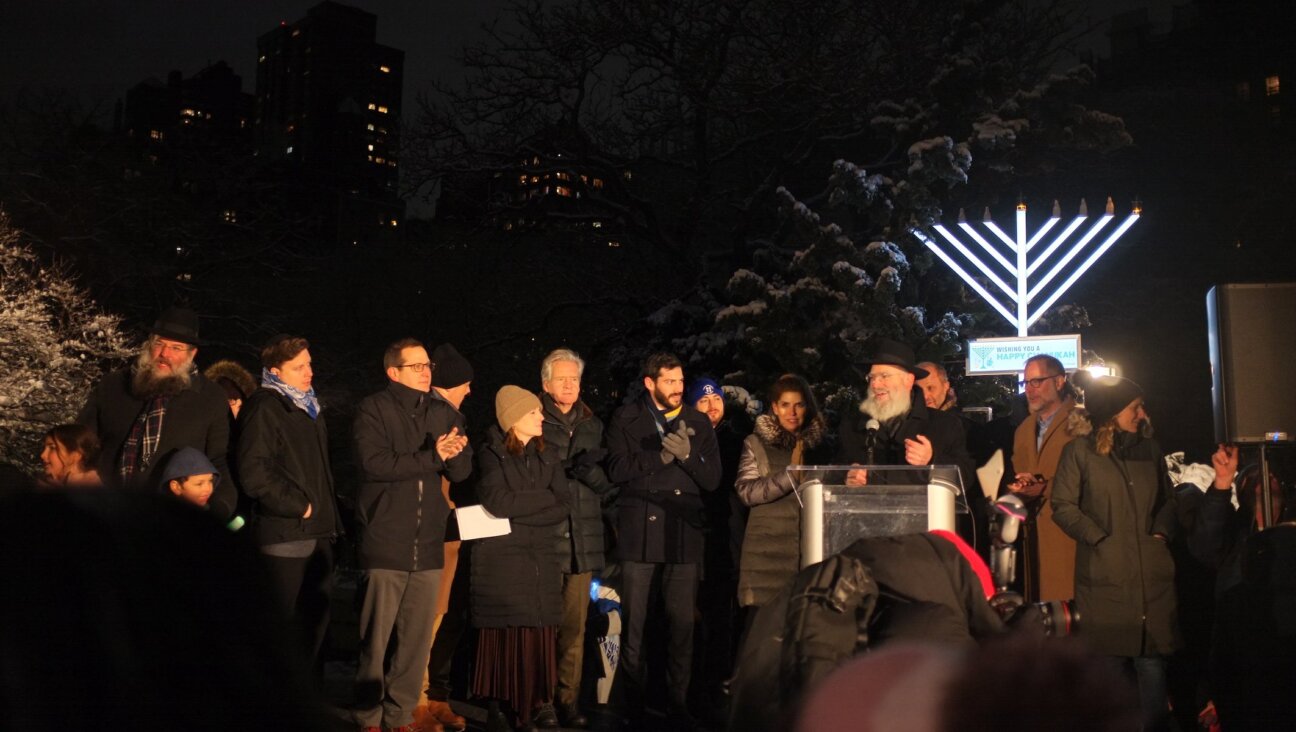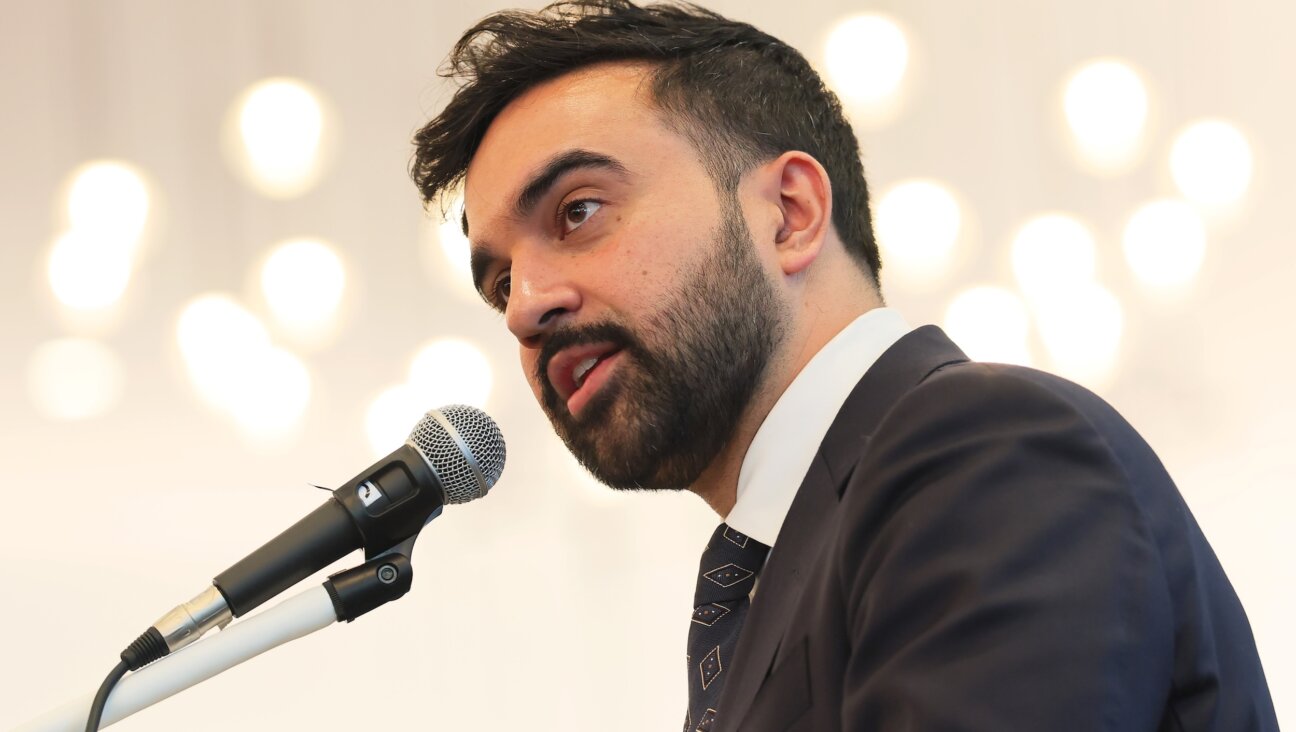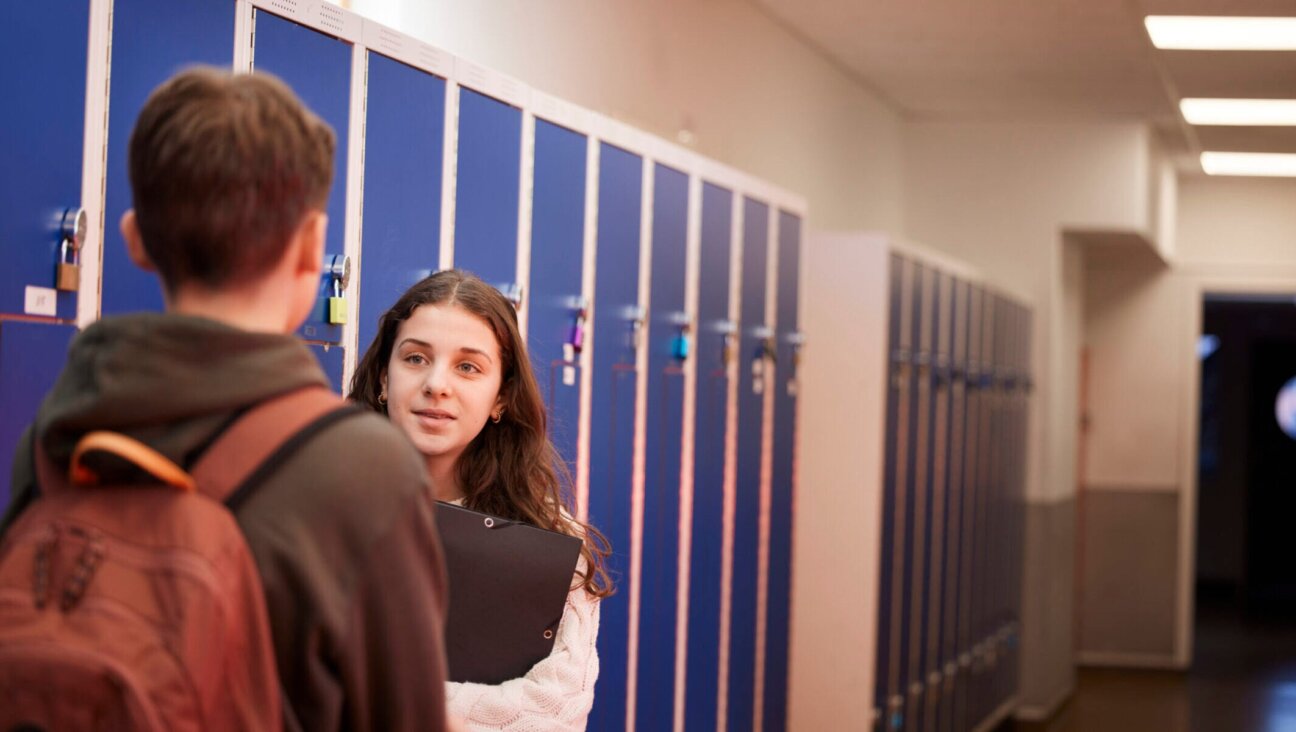Season 4 of Netflix’s ‘Stranger Things’ filmed in a Lithuanian prison where Nazis jailed Jews
Menachem Begin, the future Israeli prime minister, was imprisoned at Lukiškės for eight months in 1940 and 1941.

David Harbour in a scene from season four of “Stranger Things.” (Screenshot from YouTube)
(JTA) — Now streaming on Netflix: scenes from inside a notorious Lithuanian prison whose inmates have included Jews en route to being murdered by Nazis and future Israeli prime minister Menachem Begin.
Part of season four of “Stranger Things,” the teen hero sci-fi series, was filmed inside Lukiškės Prison in Vilnius, according to promotional materials distributed by the Lithuanian capital’s tourism board. The prison was used for a century before closing in 2019; it has now been converted into cultural center where guests can stay in a “Stranger Things”-themed cell for 107 Euros ($114) a night.
During Lukiškės’ century of operation, it was the site of imprisonment, torture and executions for political prisoners. In 1941, the first people to be murdered in the Ponary massacre were 348 Jews and others who had been imprisoned at Lukiškės. Nearly 100,000 people, mostly Jewish, would be murdered at the Ponary site near Vilnius, formerly known as Vilna, in the subsequent months.
Lukiškės was also where Begin was imprisoned for eight months in 1940 and 1941 because of his Zionist activity within the Soviet Union. His time there was marked by “extremely cold and hungry conditions,” according to a timeline assembled by the Menachem Begin Heritage Center, and was followed by deportation to a Soviet penal colony. That ultimately may have saved his life, as he was freed when the Nazis invaded the Soviet Union and ultimately was able to make his way to what would become Israel, where he became the sixth prime minister in 1977. Much of his family was murdered.
Another Jewish activist, Jakub Wygodzki, died at Lukiškės Prison when he was imprisoned there after the Nazis invaded in 1941. A physician, Zionist and supporter of Jewish aid groups, he was 84.
Vilna was a hub of European Jewish culture in the 19th and early 20th centuries. During the Holocaust, the Nazis and local collaborators killed more than 90% of Lithuanian Jews; the city is currently home to just one functioning synagogue, which shut down temporarily in 2019 because of security concerns.
“Stranger Things” has been one of Netflix’s most popular shows since its debut in 2016. Due to the release’s proximity to a Texas elementary school shooting that killed 19 children and two adults, U.S. viewers will see a content card at the start of the fourth season, which was released Friday, noting that the show “Contains graphic violence involving children.”
This article originally appeared on JTA.org.
















